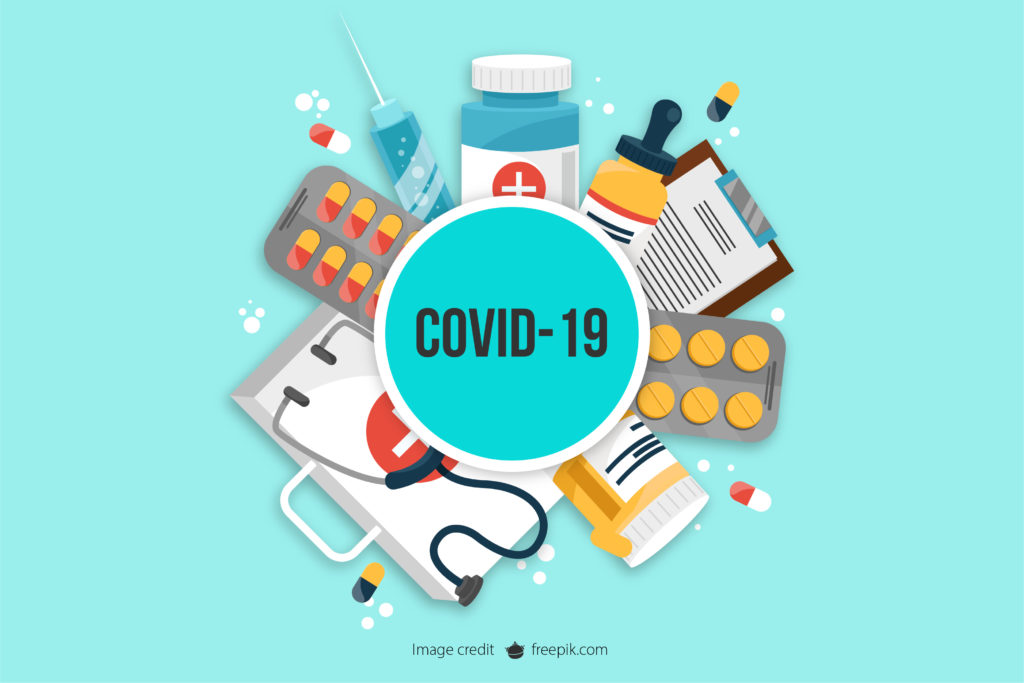After months of global debates among researchers, health authorities, and politicians, the WHO discontinued the pursuit of using hydroxychloroquine as a COVID-19 treatment by its Solidarity Trial1. Evidence shows that hydroxychloroquine—used to prevent diseases such as malaria—does not reduce the mortality of hospitalized patients and might even be harmful2,3. By this time, the U.S. authorities have stockpiled tens of millions of hydroxychloroquine tablets, a move that has been translated into not alleviation but a loss of resources4,5.
Although unprecedented times call for unprecedented measures, the story of hydroxychloroquine illustrates what can go wrong when speed is prioritized above all else on the agenda. The results might be disappointing, but the loss of lives due to misguided information could have been even more devastating.
A vaccine is analogous to an umbrella for a rainy day in this pandemic. Without such preventive measures for coronavirus, treatments are vital for reducing mortality rates and long-term damage in infected individuals6. A treatment is likely to become available before a vaccine because there are multiple routes to stop viral infection or ease the symptoms7. Possible treatments mostly fall into one of the two groups.
Antiviral Drug Therapies for Coronaviruses
Repurposing a drug that has already been tested for another disease can shorten the therapy development time significantly. For example, remdesivir, originally made to treat Ebola and Hepatitis C, was the first drug to gain emergency authorization for COVID-19 from the FDA in the United States8. Acer Therapeutics partners with the National Center for Advancing Translational Sciences (NIH, USA) to test emetine hydrochloride, which can block the activity of at least 10 viruses, including the Zika virus and coronavirus, in both laboratory and clinical settings9. Repurposed drugs get a head start because many such drugs have undergone safety evaluation and even been manufactured. Alternatively, some groups try to develop novel small molecules to inhibit viral attachment or replication. For example, the University of California San Francisco Quantitative Bioscience Institute Coronavirus Research Group (QCRG) recently identified a non-natural small molecule that targets a specific viral protein required for viral replication in humans10.
Antibody Therapies for Coronaviruses
Some therapies are based on the principle that harnesses the protective power of anti-viral (“neutralizing”) antibodies. These antibodies are naturally found in the plasma–the liquid part of the blood–in coronavirus survivors. Because of the minimal manipulation it requires, convalescent plasma therapy is considered “the first leg of a therapeutic relay race.”11 However, its effectiveness and reliability remain questionable12. The plasma can contain hundreds of antibodies with varying effectiveness and the availability of convalescent plasma, which depends on voluntary donation, cannot be predicted. More specific and concentrated antibodies can be purified from the blood of recovered patients, laboratory animals, or mammalian cell lines13, which allows scaled-up manufacturing of effective antibodies. For example, Abcellera and Eli Lilly are currently testing the best candidate among the 500 antibodies in the blood of a coronavirus survivor, LY-CoV555, in phase I clinical study14. Making antibody “cocktails” is also on the agenda of many research groups because a combination of antibodies might offer stronger protection15,16.
Sources and Further Reading:
- “WHO Discontinues Hydroxychloroquine and Lopinavir/Ritonavir Treatment Arms for COVID-19.” World Health Organization: WHO, 4 July 2020.
- Geleris, Joshua, et al. “Observational Study of Hydroxychloroquine in Hospitalized Patients with Covid-19.” New England Journal of Medicine, vol. 382, no. 25, 2020, pp. 2411–18. Crossref, doi:10.1056/nejmoa2012410.
- “FDA Cautions Use of Hydroxychloroquine/Chloroquine for COVID-19.” U.S. Food and Drug Administration, 1 July 2020.
- Elizabeth Cohen, and Wesley Bruer. “Hydroxychloroquine: US Stockpile Stuck with 63 Million Doses of the Drug.” CNN, 18 June 2020.
- Hancock, Laura. “Ohio Sitting on 4M Hydroxychloroquine Pills, No Longer Recommended for Coronavirus.” Cleveland.Com, 19 June 2020.
- Scheimer, Dorey. “Lingering Symptoms, Long-Term Damage: For Some, It’s A COVID-19 Recovery Reality | On Point.” WBUR, 25 June 2020.
- Corum, Jonathan, et al. “Coronavirus Drug and Treatment Tracker.” NY Times, 16 July 2020.
- “Coronavirus (COVID-19) Update: FDA Issues Emergency Use Authorization for Potential COVID-19 Treatment.” U.S. Food and Drug Administration, 1 May 2020, www.fda.gov/news-events/press-announcements/coronavirus-covid-19-update-fda-issues-emergency-use-authorization-potential-covid-19-treatment.
- Acer Therapeutics Inc. “Acer Therapeutics to Develop Emetine as Potential COVID-19 Treatment in Collaboration with National Center for Advancing Translational Sciences, One of the National Institutes of Health.” Acer Therapeutics Inc., 11 May 2020.
- “Building Blocks for COVID-19 Antiviral Drugs Identified in Rapid Study.” UC San Francisco, 9 July 2020.
- Sheridan, Cormac. “Convalescent Serum Lines up as First-Choice Treatment for Coronavirus.” Nature, 1 May 2020.
- Li, Ling, et al. “Effect of Convalescent Plasma Therapy on Time to Clinical Improvement in Patients With Severe and Life-Threatening COVID-19.” JAMA, 2020. Crossref, doi:10.1001/jama.2020.10044.
- “COVID-19 Treatment and Vaccine Tracker.” Milken Institute, 7 July 2020, covid-19tracker.milkeninstitute.org.
- “Lilly Begins World’s First Study of a Potential COVID-19 Antibody Treatment in Humans.” Eli Lilly and Company, 1 June 2020.
- Baum, Alina, et al. “Antibody Cocktail to SARS-CoV-2 Spike Protein Prevents Rapid Mutational Escape Seen with Individual Antibodies.” Science, 2020, p. eabd0831. Crossref, doi:10.1126/science.abd0831.
- Hansen, Johanna, et al. “Studies in Humanized Mice and Convalescent Humans Yield a SARS-CoV-2 Antibody Cocktail.” Science, 2020, p. eabd0827. Crossref, doi:10.1126/science.abd0827.
